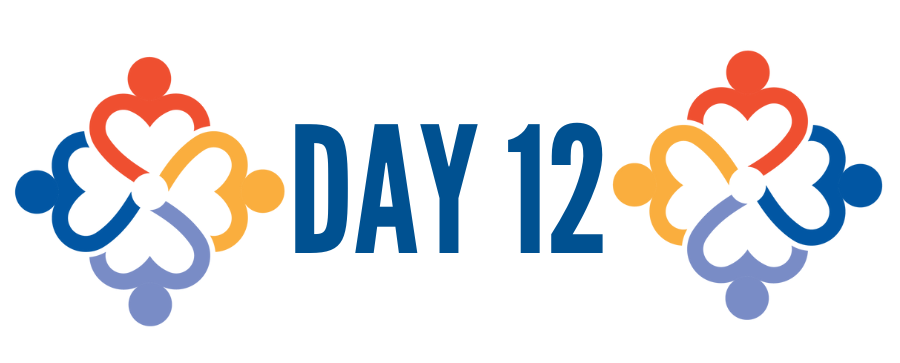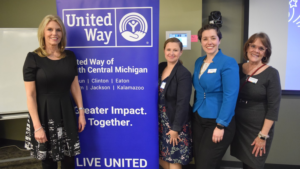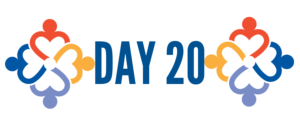
Day 12: Mental Health
Mental health is a broad category that includes emotional, psychological, and social well-being. It impacts every part of our day-to-day living. Like our physical well-being, mental health is impacted by our individual choices and systems. More than 1 in 5 adults in the United States live with a mental illness. While highly treatable and sometimes even preventable, not everyone has access to the support and resources they need.
For example, Black, Indigenous, and other People of Color have more difficulties accessing mental health care. The reasons for this are complicated and sometimes include lack of health insurance coverage, stigma or negative ideas about seeking mental health care, and difficulties finding providers from their racial or ethnic group.
The stress associated with experiencing discrimination, violence, and microaggressions can also lead to negative health impacts, both physical and mental. Microaggressions are “the everyday, subtle, intentional — and oftentimes unintentional — interactions or behaviors that communicate some sort of bias toward historically marginalized groups” (NPR: Life Kit). The micro of microaggressions points out the interpersonal nature of the interactions in contrast to macro or systems-level impact of oppression.
So while microaggressions can sometimes seem minor, it’s often been described as a death by a thousand paper cuts. The experience of constantly wondering if something happened because of being disabled, trans, Latino, and other oppressed identities can leave people feeling silenced, angry, and resentful (Understanding Racial Microaggressions). Repeated small injuries add up and this shows up as chronic stress – which increases the rates of heart disease, high blood pressure, and other health conditions – anxiety, depression, and other physical and mental health impacts.
Today’s Challenge
Read:
Mental Health Care Was Severely Inequitable, Then Came the Coronavirus Crisis by Azza Altiraifi and Nicole Rapfogel (12 min read) [Sep 2020]. Equitable access to mental health care became even more difficult in the midst of the pandemic. Learn more about the existing disparities, challenges people holding oppressed identities face accessing mental health care, and actions that can create paths to more equitable access and care.
Watch:
Stop the Stigma: Why it’s important to talk about Mental Health by Heather Sarkis (Jun 2019) [9 min watch]. Heather Young Sarkis is a Psychiatric-Mental Health Nurse Practitioner with over 15-years’ experience in different roles within the psychiatric and mental health field. Ms. Sarkis is the co-founder of the Sarkis Family Charitable Foundation, a grass-roots effort with the goal of reducing stigma related to mental illness through community education and engagement. She provides a unique viewpoint and embraces the immediate need for mental health care.
Discussion:
- What surprised you in today’s challenge content?
- How do you care for and tend to your own mental wellness?
- Growing up, what messages did you receive about mental illness and mental health? How did that impact you then? How does it still impact you today?
- What can you do in your personal and professional life to minimize stigma and support others’ mental health?










